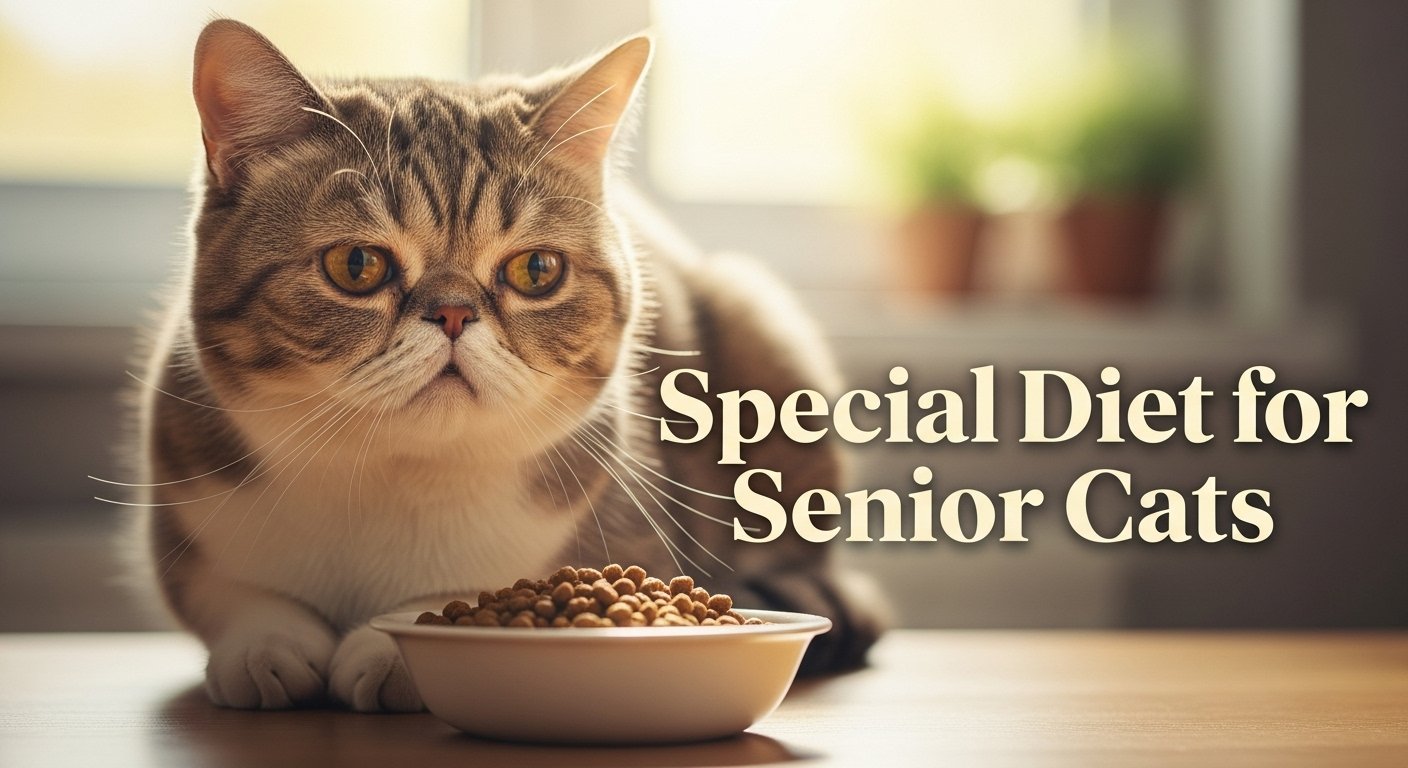
Special Diet Needs for Senior Cats
Cats age gracefully, but just like humans, their nutritional needs change over time. A cat is typically considered “senior” around 11 years of age, and by 15, they’re often categorized as “geriatric.” During these golden years, your feline friend may experience slower metabolism, reduced mobility, and higher risk of health issues.
One of the most important ways to support an aging cat is through proper diet. Food plays a huge role in managing weight, supporting organ function, and keeping them active and comfortable.
This guide covers the special diet needs of senior cats, from essential nutrients to feeding tips and recommended food types.
How Aging Affects a Cat’s Nutritional Needs
Senior cats experience physical changes that impact how they process and use food:
- Slower metabolism: Easier to gain weight on fewer calories.
- Muscle loss (sarcopenia): They need higher-quality protein.
- Dental issues: Difficulty chewing dry food, need softer options.
- Digestive changes: Some cats absorb nutrients less efficiently.
- Kidney health concerns: Many older cats develop chronic kidney disease.
- Dehydration risk: Seniors may not drink enough water, leading to urinary or kidney problems.
Because of these changes, diet adjustments are essential for keeping senior cats healthy.
Protein: The Cornerstone of Senior Cat Diets
Cats are obligate carnivores, meaning they require protein from animal sources. For senior cats:
- High-quality protein is crucial to maintain muscle mass and prevent weakness.
- Look for foods with real meat (chicken, turkey, fish, beef) as the first ingredient.
- Avoid low-protein diets unless recommended by your vet for kidney disease.
Pro Tip: Wet food is often better for seniors it’s easier to chew and digest while providing hydration.
Essential Nutrients for Senior Cats
- Omega-3 Fatty Acids
- Found in fish oils (like salmon oil).
- Help with arthritis, joint mobility, and skin/coat health.
- Antioxidants (Vitamins C & E)
- Support immune function.
- Protect cells from age-related damage.
- Fiber
- Helps with digestion and prevents constipation.
- Found in pumpkin, beet pulp, or certain cat food formulas.
- Taurine
- An essential amino acid for heart and vision health.
- Always check senior formulas include taurine.
- Controlled Phosphorus & Sodium
- Supports kidney and heart health.
- Especially important if your cat shows early signs of kidney disease.
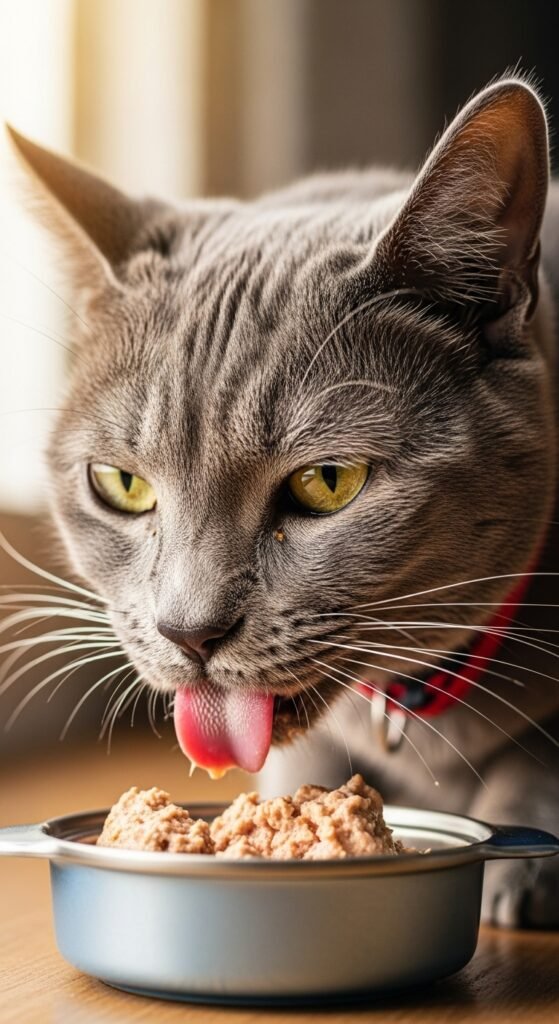
Hydration: Why It’s Critical
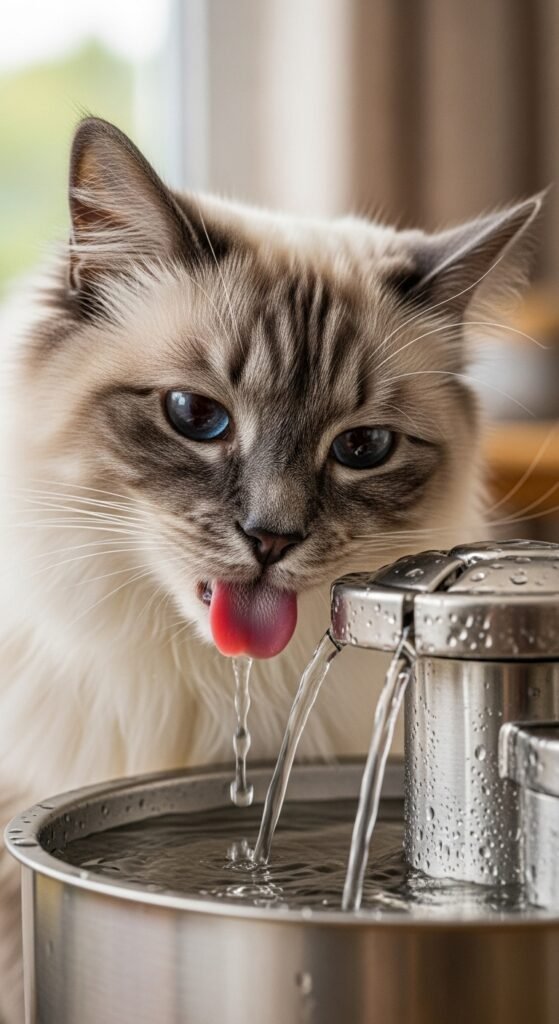
Dehydration is a major risk for senior cats. Many older cats drink less water but need more due to aging kidneys.
Tips to improve hydration:
- Offer wet/canned food regularly.
- Use a cat water fountain cats are attracted to moving water.
- Place multiple water bowls around the house.
- Add low-sodium broth to meals for flavor and hydration.
Managing Weight in Senior Cats
Overweight Cats
- Excess weight increases arthritis pain, diabetes risk, and heart strain.
- Switch to calorie-controlled senior formulas.
- Increase low-impact play and exercise..
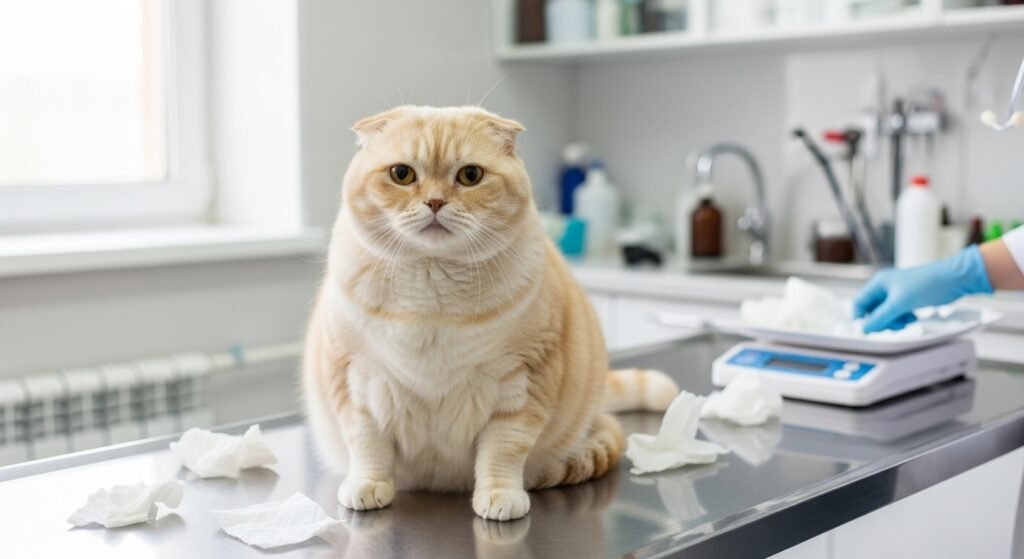
Underweight Cats
- Some senior cats lose weight due to muscle loss or illness.
- Offer calorie-dense wet foods.
- Hand-feed treats to encourage eating.
Any sudden weight changes should be checked by a vet.
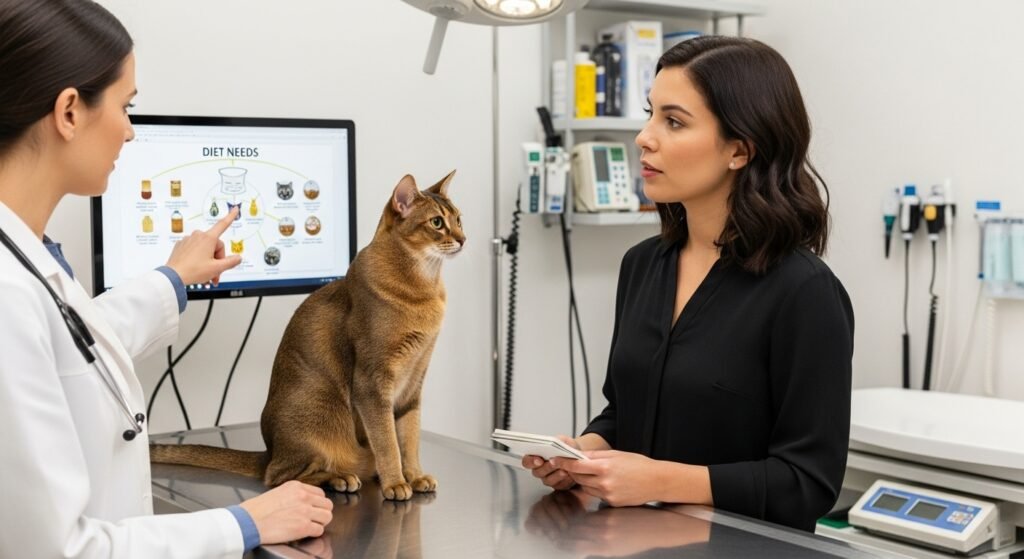
Special Diet Considerations for Health Conditions
Many senior cats develop chronic conditions that require dietary adjustments.
Kidney Disease
- Low phosphorus diet recommended.
- Wet food with added hydration.
- Prescription kidney diets (Hill’s k/d, Royal Canin Renal Support).
Diabetes
- High-protein, low-carb diets.
- Consistent feeding times to balance insulin.
Arthritis
- Diets with omega-3 fatty acids and glucosamine supplements.
Heart Disease
- Controlled sodium diets.
- Vet-approved prescription foods.
Feeding Tips for Senior Cats
- Smaller, Frequent Meals – Easier to digest than one large meal.
- Warm Food Slightly – Enhances aroma, encourages picky eaters.
- Elevated Bowls – Reduce strain on joints and neck.
- Monitor Appetite Closely – Sudden changes may signal illness.
- Routine Vet Checkups – Nutritional needs may change as health shifts.
Common Myths About Senior Cat Diets
- Myth 1: All senior cats should eat low-protein diets.
Truth: Only cats with kidney disease may need reduced protein. Healthy seniors need plenty of it. - Myth 2: Dry food is better for teeth.
Truth: Dental care is important, but dry food doesn’t replace brushing or vet cleanings. - Myth 3: Supplements replace a balanced diet.
Truth: Supplements only help when paired with proper nutrition.
Mistakes Owners Make
- Feeding the same food for years without considering aging needs.
- Giving table scraps that can upset digestion.
- Ignoring hydration needs.
- Assuming weight loss is “normal aging” when it may indicate illness.
Final Thoughts
Senior cats bring comfort, wisdom, and deep companionship. By adjusting their diet to meet changing needs, you can add years of health and happiness to their lives.
Remember:
- Prioritize high-quality protein.
- Keep them hydrated with wet food and fountains.
- Adjust diets based on health conditions.
- Work with your vet to create a personalized nutrition plan.
With the right care, your senior cat can continue thriving well into their golden years still purring, still snuggling, and still filling your home with love.



